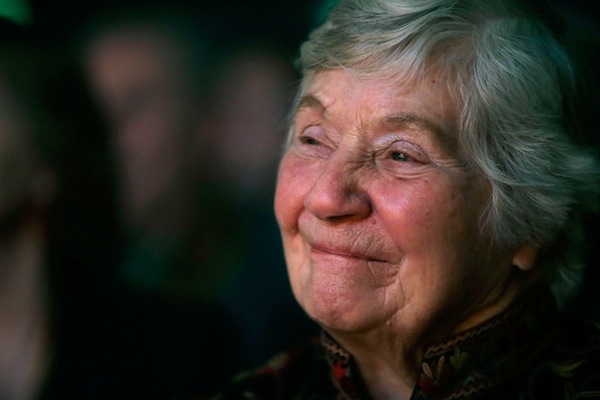A crime reporter friend enjoys telling the story of his first black eye at the local Magistrates’ Court. Like so many, it occurred as he was leaving, and bumped into a convicted defendant. The conversation ran along these lines:
Man convicted of awkward crime: You’re not putting this in the paper, are you? You can’t do this, it’ll ruin my business.
Reporter, in his first job and in a chippy mood: You should have thought about then when you did it, mate.
Man convicted of awkward crime’s right fist makes contact with reporter’s eye.
I remembered this story this evening as the Lib Dems started their party’s spring conference in Brighton with a rally for International Women’s Day. Awkward timing for the party, given the claims that the leadership managed to ignore allegations about Lord Rennard when he was its chief executive. Nick Clegg did the right thing by opening the rally with an address on the allegations and what the party was now doing about them. ‘We let people down,’ he said. ‘Liberal Democrats, that’s not acceptable to me.’
The party has set up two inquiries in the aftermath of the allegations, which Rennard strenuously denies. But if Clegg’s decision to address the scandal head-on soothed frayed nerves in the party, the next speaker didn’t exactly rub in the balm.
Shirley Williams is beloved by Lib Dem activists, and normally conducts herself with a magnificent elder stateswoman manner. She spoke to the conference about the by-election, about the NHS, about Chris Huhne… and about Lord Rennard. And it was her words that reminded me of that altercation outside the magistrates’ court. She said:
‘Journalism is a great profession, but it’s a profession that can demean itself. In the last couple of months, I think it has truly demeaned itself at least in some parts. Some of the right wing tabloids have gone on and on in a way which is almost maniacal and has absolutely place in the sort of serious issues that should have been considered.’
She drew parallels with the treatment of some Republican candidates by partisan journalists in the US, and added:
‘Please, fellow journalists… don’t let this happen here. Don’t let us fall into the viciousness of partisanship, the extremism that is seen on the American right wing… I say that because Nick has been above all the victim of this.’
What the Lib Dems are doing is just like that defendant outside the court, and yes, there are plenty of chippy reporters encircling them, too. Those women who made the allegations to Channel 4 agreed to speak to ‘self-appointed detective’ Cathy Newman after they felt their complaints had been ignored by the party’s own internal processes. The allegations may be proven to be untrue, but there was a failure of due process, and that’s something that Nick Clegg, Tim Farron, and tonight Jo Swinson, have made very clear. That failure came back to haunt them during their by-election campaign because they hadn’t dealt with the complaints at the time.
In Ian McEwan’s book ‘Solar’, the main character refuses to take responsibility for any of his actions in his personal or professional life. Everything bumbles on well until the biggest day of his career, when everything, from his relationships to his career, ends up being smashed – in one instance quite literally. The Lib Dems are discovering the consequences of refusing to take responsible actions when they weren’t a party of government. And sometimes those consequences only emerge on the big occasions, rather than quietly and conveniently. Their attitude is ‘if only those awful journalists hadn’t reported the allegations of women who felt ignored, then none of this fiasco would have occurred’. It’s an attitude the party enjoys nurturing: the voting system is against us, the press is against us.
But Baroness Williams forgot to mention that it wasn’t the right-wing tabloids who started the Rennard row. It was Cathy Newman at Channel 4, and if the party thinks that her story, which sparked the feeding frenzy, was a partisan plot against the Liberal Democrats, then they should probably have a word with Ofcom. Did they really think that once a story which suggested a cover up at the heart of a political party had broken, the other papers would sit back and wait for the by-election to pass before they tucked in? If they did, they need to remember that they’re a party of government now, not one plodding along in the obscurity of opposition.
As James argued in last week’s magazine, they weren’t acting in opposition as though they were a party in government, which makes it all the easier for the press to hold them accountable. Yes, journalists holding you to account might make you want to lash out, as that man leaving the Magistrates’ Court did to the chippy reporter.
But perhaps some of those women who feel they were victims of Lord Rennard might take issue with the idea that Nick Clegg is the one who really suffered from the scandal. Of course he’s a ‘victim’ (or perhaps ‘focus’) of the story: he’s the party leader. And he’s the leader of a party in government, no less.







Comments